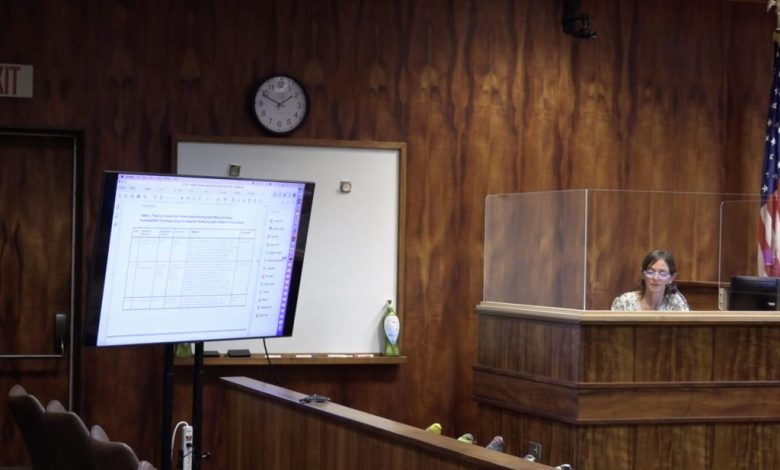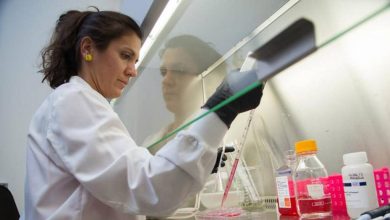Hawai‘i Unites files appeal in effort to stop release of mosquitoes in East Maui : Maui Now

[ad_1]
The environmental nonprofit Hawai‘i Unites has filed an appeal for their case against the State of Hawai‘i Board of Land and Natural Resources and Department of Land and Natural Resources to stop the release of mosquitoes in East Maui and require an environmental impact statement and comprehensive studies of the risks of the project.
In January, First Circuit Court Judge John M. Tonaki issued an order granting the State of Hawai‘i’s motion for summary judgment, stopping the case from going to trial this July as scheduled. Hawai‘i Unites is seeking a ruling that the case be remanded back to the circuit court and go to trial.
The state and multi-agency partnership Birds, Not Mosquitoes have proposed using the Incompatible Insect Technique to control mosquito populations that are largely responsible for transmitting avian malaria—which is the primary cause of extinction of three species of native Hawaiian honeycreeper birds.
An environmental assessment was published in December 2022. The effort is the latest work to save endangered Hawaiian forest birds. Two types, kiwikiu and ʻākohekohe, have decreased by more than 70% over the last 20 years, and population projections predict extinction in the next two to 10 years, the study said.
According to the Hawaiʻi Unites appeal, “the final environmental assessment for the mosquito release plan fails to demonstrate why the project will not have a significant contrary and potentially adverse impact on the environment.” The organization has raised concerns that they say are backed by “peer-reviewed studies and scientific expert opinions documenting potential serious risks to the health of people and to the endangered native birds the plan is meant to save.”
According to our earlier reports, the EA outlined the following key points in support of the project:
- Male mosquitoes do not bite animals or humans. This project would only release male mosquitoes.
- Wolbachia is already present in many insects in Hawaiʻi, including the southern house mosquito populations present on Maui. This project would release only male mosquitoes with a different strain of Wolbachia bacteria to that occurring in southern house mosquitoes in East Maui.
- Wolbachia bacteria cannot transfer between animal species or to humans. Similarly, it cannot transfer between male mosquitoes and female mosquitoes; mosquitoes can only inherit Wolbachia from their mother.
- The southern house mosquito, like all mosquitoes in Hawaiʻi, is an invasive species on Maui. It occupies higher elevations and cooler environments than other species of mosquitoes found on Maui. Other mosquito species would not expand their ranges in response to elimination of southern house mosquitoes.
- Southern house mosquitoes are not an important source of food for native bats, birds, or other insects in Hawaiʻi.
- Neither southern house mosquitoes nor Wolbachia bacteria are new organisms to Maui; this project would not result in introduction of any new species to the island.
- The proposed use of IIT does not include genetic engineering techniques which result in genetically modified organisms (GMOs).
“These mosquito releases are an experiment that has not been sufficiently studied,” said Hawai‘i Unites founder Tina Lia, who is also a plaintiff in the case. “We’re talking about disease vectors infected with foreign bacteria… The way this is being pushed forward is totally irresponsible.”
In the hearing for their motion for temporary restraining order and preliminary injunction last July, Hawai‘i Unites’ expert witness Dr. Lorrin Pang testified about the lack of study of the risks of the project and the irreversible harm it could cause to the island.

Dr. Pang is a tropical disease and vector expert who has authored over 40 peer-reviewed medical journal publications focused on mosquito-borne illnesses and has mitigated mosquito-borne illnesses, including dengue and Zika, for over two decades as a public health leader on the islands. When asked on the stand if the experimental mosquito-release plan had been studied enough for the State and its agency partners to move forward, Pang said, “No.”
In response to the Judge’s summary judgment decision, Dr. Pang explained, “He implies we base our argument only on things which might happen… It is not only what ‘might’ happen, but quantitatively how likely or unlikely might it happen – both the benefits and the side effects.”
HawaiiUnites.org launched a month-long campaign to raise funds to file the appeal.
“If the Judge’s decision is not appealed, it will set a precedent for allowing inadequate environmental review of future proposed experimental projects that could have significant impacts to our fragile ecosystems and to the well-being of our community,” said Lia.
[ad_2]
Source: Maui News




